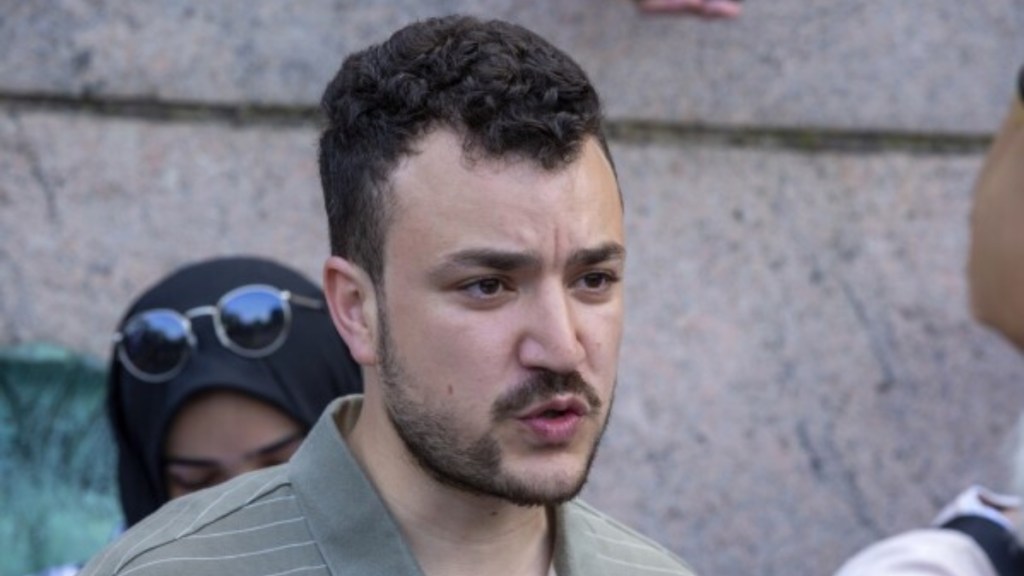Palestinian activist and former Columbia University student Mahmoud Khalil was released from a federal immigration detention center in Louisiana on Friday, after spending 104 days in custody. A judge ordered his release, saying there was no reason to keep him detained.
Khalil, who had become a symbol of President Donald Trump’s strict actions against campus protests, was arrested on March 8 from his apartment in Manhattan. He is now expected to travel to New York to reunite with his wife, a US citizen and their newborn son. “Justice prevailed, but it’s very long overdue,” Khalil said after stepping out of the facility. “This shouldn’t have taken three months.”
Who is Mahmoud Khalil?
Mahmoud Khalil is a Palestinian activist and former graduate student at Columbia University, known for his prominent role in pro-Palestinian demonstrations on campus during the spring of 2024, particularly amid the conflict in Gaza.
Originally from Syria, Khalil completed his bachelor’s degree in computer science at Lebanese American University and later earned a master’s degree in public administration from Columbia University’s School of International and Public Affairs in December 2024. Prior to his graduate studies, he worked in international development, including with the United Kingdom’s Foreign, Commonwealth and Development Office.
Khalil became a key student negotiator and spokesperson for demonstrators at Columbia during a period marked by widespread protests against the Israel-Hamas conflict. He was actively involved in organising rallies, teach-ins, and advocating for university divestment from financial ties to Israel, while publicly disavowing antisemitism and emphasizing the distinction between anti-Palestinian sentiment and antisemitism.
Why was Khalil detained by ICE?
In March 2025, Khalil was detained by US Immigration and Customs Enforcement (ICE) agents in New York after his lawful permanent resident status was revoked by the Trump administration. His detention was part of a broader crackdown on pro-Palestinian activism and international students, with the government arguing that his activism posed a threat to US foreign policy interests.
Khalil was held in a federal immigration detention center in Louisiana for 104 days. His case attracted national and international attention, especially after he was denied the opportunity to be with his wife during the birth of their first child.
A federal judge in New Jersey, Michael Farbiarz, ordered Khalil’s release in June 2025, ruling that he was neither a flight risk nor a danger to the community. The judge criticised the government’s prolonged detention of Khalil as “highly, highly unusual” and potentially punitive due to his political beliefs. Khalil’s release was seen as a significant setback to the Trump administration’s efforts to detain and deport students and academics for their pro-Palestinian expressions. Following his release, Khalil expressed a focus on reuniting with his family and continuing his legal fight against deportation.
US District Judge Michael Farbiarz said there was no legal reason to keep Khalil in detention. “Petitioner is not a flight risk and the evidence presented is that he is not a danger to the community,” the judge said. “Period, full stop.” He added that the government had “clearly not met” the legal standards to continue holding him.
Trump administration challenged Khalil’s release
Despite the ruling, the Trump administration has filed an appeal to challenge Khalil’s release. They argue he should be deported for participating in pro-Palestinian protests. US Secretary of State Marco Rubio said Khalil should be expelled, claiming his presence harms US foreign policy. However, the judge said Khalil cannot be deported just for his political views.

